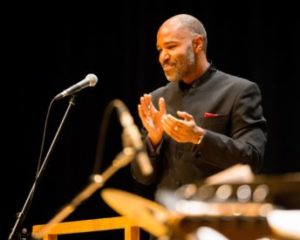 Daniel Bartholomew-Poyser comes to the Orchestras Canada board from a varied career as a music director, performer and music educator. He is currently the Artist in Residence and Community Ambassador with Symphony Nova Scotia, conducting ballet, pops, family and outreach concerts with the orchestra. Prior to this he also held assistant positions with the Kitchener-Waterloo Symphony and the Thunder Bay Symphony Orchestra. We had the pleasure of speaking with Daniel recently to talk about his experience, and some of the challenges Canadian Orchestras are currently facing.
Daniel Bartholomew-Poyser comes to the Orchestras Canada board from a varied career as a music director, performer and music educator. He is currently the Artist in Residence and Community Ambassador with Symphony Nova Scotia, conducting ballet, pops, family and outreach concerts with the orchestra. Prior to this he also held assistant positions with the Kitchener-Waterloo Symphony and the Thunder Bay Symphony Orchestra. We had the pleasure of speaking with Daniel recently to talk about his experience, and some of the challenges Canadian Orchestras are currently facing.
How did you come to be involved with Orchestras Canada?
How has your background as a conductor prepared you for serving on the Orchestras Canada board of directors?
As a Conductor, I regularly transit multiple worlds, those of administration, artist and audience. I work on behalf of the people in these areas, often negotiating between them, meaning I have become intimately acquainted with their unique needs and perspectives. This awareness of the realities transpiring in the office, on the stage and in the lobby and the daily work of bringing them all together gives me an excellent standpoint from which to serve Canadian orchestras through Orchestras Canada.
What do you see as some of the major challenges presently facing Canadian orchestras?
We have tremendous opportunity ahead of us; people are re-valuing group and communal social experiences as a respite from the solitude often imposed by technology. Nevertheless, they expect technology to be essentially integrated into entertainment experiences both in terms of content and form. This requires a shift.
Additionally, the opportunity represented by growing awareness and desire for diversity bring us to the cusp of an almost revolutionary change in content, in the way we do collaboration, and in orchestral culture. These are incredibly exciting times and I am thrilled to be serving with Orchestras Canada, helping orchestras chart the course forward!
